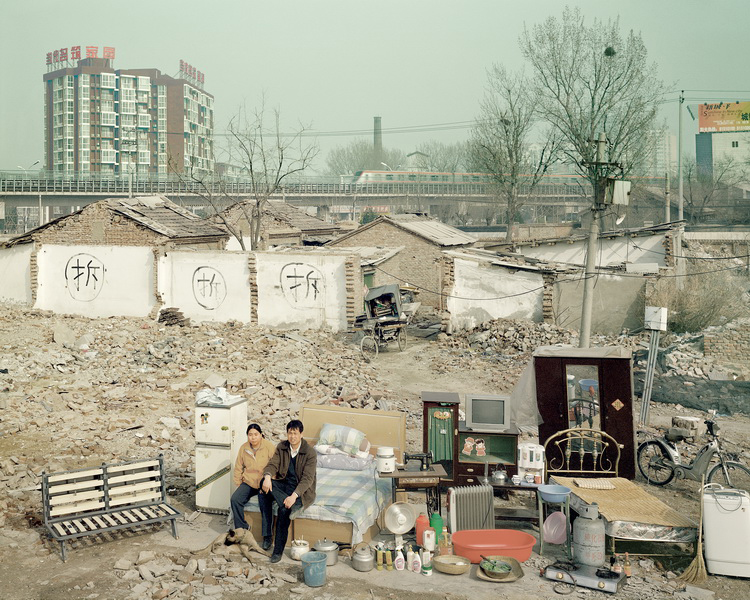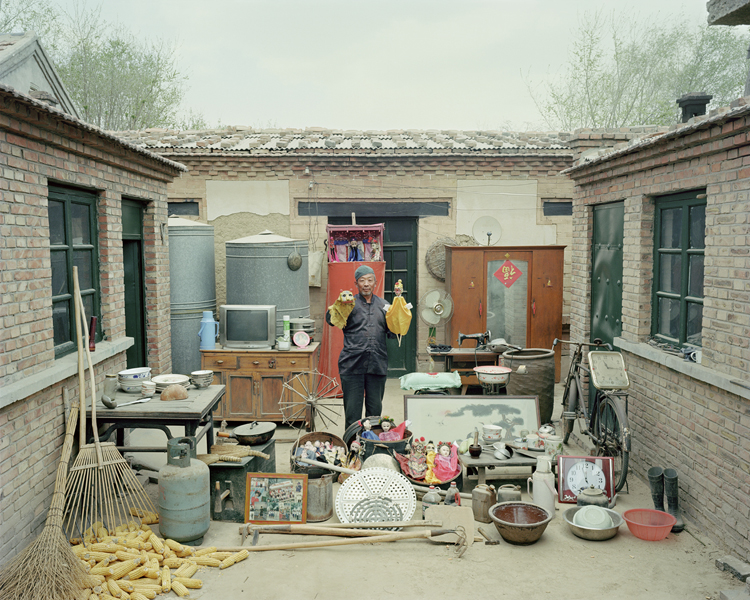But seen more closely, they also show the enormous social change that has come in a generation. So the photo of an elderly couple of farmers outside their mud house reveals a satellite dish, DVD player and phone.

"People's lives have changed enormously. Maybe their incomes haven't been affected as much as in the cities, but their thinking has," says Huang. The idea for the series about people's material goods, now called Jiadang (Family Stuff), came in 2003 with some photos he took for the magazine Chinese National Geography. But the project didn't really get under way until three years later, when Huang started travelling around China looking for suitable places and people.

Some of the projects took a couple of days, others several months as he waited for one couple to move house. Their home, like millions of others, had been slated for demolition to make way for tower blocks or offices. As they sit on their bed, the wall behind them is marked with the Chinese character chai, meaning "tear down."


"In lots of Chinese villages, the government has delivered roads and connected them with electricity. This has been a huge change. If you've a road, you can move about. If you've got electricity you can have TV, you get the news and ideas about what the outside world is thinking. "The biggest problems in rural areas now are how people can get better education for their children, and healthcare," he says.
Many photos appear to capture something that is about to be lost. Families camp as if about to move on. They are framed by houses that have just been expensively renovated or are about to be pulled down. The preponderance of cooking utensils, the paucity of clothes and items of leisure suggest a lifestyle that is about to be upended.
Most families have already acquired a TV, a few have washing machines. The pedal-driven sewing machine which in their parents' generation was every housewife's dream - known as one of the "four big things" - is pushed to the back of a few pictures.
It can't be long before the consumer goods, brand names and luxury goods that have been voraciously snapped up by China's urban middle class begin to sneak in to the pictures. A BMW car and flat-screen TV can already be seen in his portrait of film director Zhang Yuan, outside his home in Beijing.






He also hopes to broaden the project's range, including people from a wider range of backgrounds, like entrepreneurs and government officials. He's even thinking about asking Jack Ma, an internet entrepreneur and one of China's richest men. "Those pictures probably couldn't manage to contain all of their possessions. But it could include the things they use every day.
"From the possessions each family uses in their daily lives, you get a good sense of the real levels of life for China's people."





Cap comentari:
Publica un comentari a l'entrada